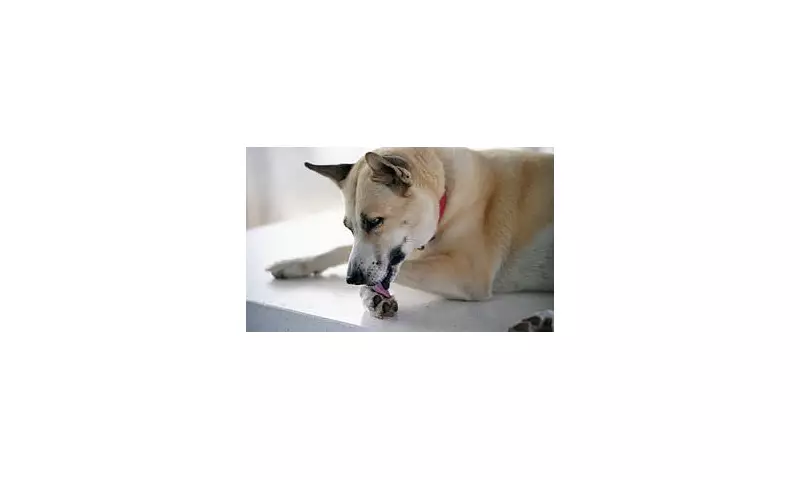
Veterinary experts are issuing an urgent alert to dog owners across the UK about a common behaviour that could mask serious health complications. While occasional paw cleaning is normal, compulsive licking may indicate underlying conditions requiring immediate attention.
The Hidden Dangers Behind the Behaviour
What many owners dismiss as simple grooming could actually signal anything from environmental allergies to painful infections. Persistent licking often develops into acral lick dermatitis, a severe condition where the skin thickens and becomes vulnerable to secondary infections.
Primary Causes Identified by Veterinarians
- Allergic reactions to pollen, grass, or household chemicals
- Parasitic infestations including mites and fleas
- Anxiety and stress-related disorders manifesting as compulsive behaviour
- Pain from arthritis or unseen injuries
- Bacterial or fungal infections between paw pads
When to Seek Immediate Veterinary Care
Experts emphasise that while occasional licking is normal, owners should become concerned when they notice:
- Redness, swelling, or visible sores between paw pads
- Constant licking sessions lasting more than few minutes
- Behaviour changes including reluctance to walk or play
- Visible hair loss or discoloration around paws
- The development of thick, scar-like tissue
Prevention and Treatment Strategies
Veterinarians recommend regular paw inspections, especially after walks in urban areas. Using pet-safe cleaning wipes can remove allergens before they cause irritation. For anxiety-related cases, behavioural therapy and environmental enrichment often prove more effective than medical interventions alone.
With millions of dogs affected annually, this warning highlights the importance of recognising subtle behavioural changes that could prevent months of discomfort and expensive treatments for our canine companions.





